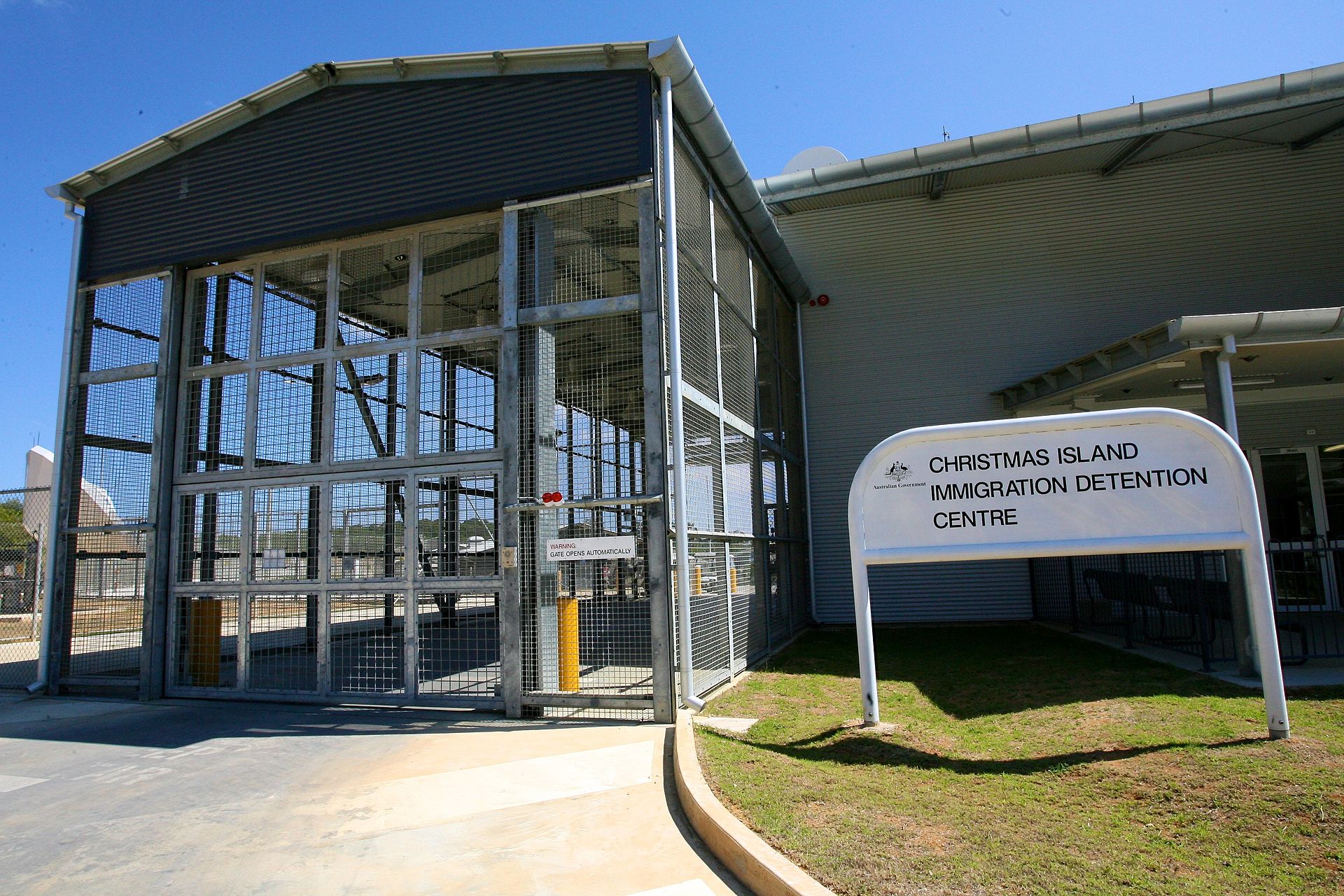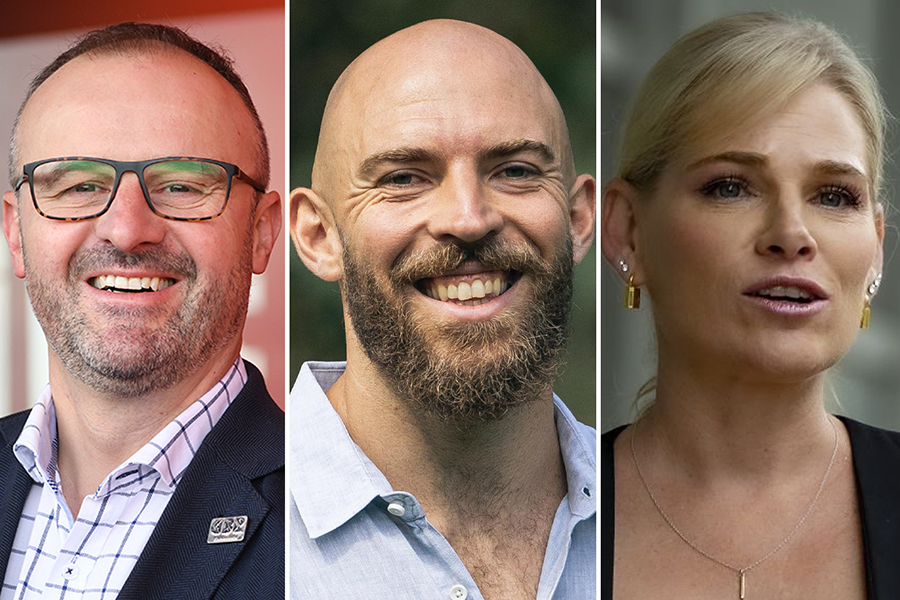
“In the nearly five decades that I’ve been a member of the ALP, the policy that cuts me most deeply and which I will never support, is our heartless treatment of asylum seekers,” writes columnist JON STANHOPE.
ASYLUM seekers have been on my mind over the last few weeks.

Initially, my attention was focused on arrangements I was making for the transfer, to the National Library, of more than 24,000 photographs of asylum seekers arriving on Christmas Island between 2008 and 2013.
The photographs are an important record of a troubling chapter in Australia’s history. They do what successive Australian governments have striven so hard to hide, namely, they reveal the humanity of the men, women and children who have risked all in travelling to Australia in pursuit of safety and a better life.
I am pleased the National Library has agreed to include the photographs in its collection. I am not familiar with the library’s cataloguing regime, but I am assuming they will be filed under “Australia’s Shame” or something along those lines.
Coincidentally, as I was finalising arrangements for the transfer of the photographs, the issue of asylum-seeker policy became, in the context of the looming election, the subject of a heated exchange between Prime Minister Scott Morrison and Opposition Leader Anthony Albanese.
At issue was which of the contending parties, Labor or Liberal, could be trusted to be the most heartless and brutal in the treatment of any person daring to seek asylum in Australia.
It was quickly established that, on the question of continuing support of the policy of mandatory and indefinite offshore detention, the Labor and Liberal Parties were in lockstep.
Albanese nevertheless rightly claimed the high moral ground by reminding us all that it was he, as deputy prime minister to Kevin Rudd in 2013, who was responsible for initiating the policy and that the Labor Party remained resolute in its commitment to mandatory and indefinite offshore detention.
Morrison then sought to trump Labor by insisting that it was wimpish on boat turnbacks only to have Albanese match the Liberal bid.
As an aside, I am one of those that believes that the policy is almost certainly, in aspects of its operation, contrary to international law. However, the race to the bottom having ended in an honourable draw, the parties have shelved the issue until next time.
I am approaching 50 years of continuous membership of the ALP. I understand politics and the difficult choices that confront politicians and political parties, and that pragmatism will, from time to time, supplant principle. I don’t pretend that in my time in politics I didn’t face and perhaps fail such contests.
Nevertheless, of all the policies and decisions taken by the ALP in the nearly five decades that I have been a member of the party, the policy that cuts me most deeply and which I will never support, is our heartless treatment of asylum seekers.
Confident, as I am, that Labor will win the election in a canter I am hoping that as prime minister, Albanese will, as a priority, ensure that every asylum seeker languishing on Nauru or in Papua New Guinea is brought to Australia and, together with those already here, be allowed to live in the community and afforded all possible support.
Notably, about eight weeks after the election, it will be nine years since the policy of mandatory and indefinite offshore detention was instituted by Labor, yet disturbingly there are on Nauru and in New Guinea asylum seekers subject to that policy who will commence, in our names, their tenth straight year of detention on that day.
Interestingly, another dusty skeleton from Labor’s last term in government was recently aired with the handing down of a decision by the Supreme Court of WA overturning the conviction, between the years 2010 and 2012, of six Indonesian boys who had been members of the crew of asylum seeker boats, on charges of facilitating the entry into Australia of people to whom the Migration Act applied.
Each of the boys was sentenced to the mandatory minimum penalty for an adult of five years’ imprisonment with a minimum non-parole period of three.
The grounds of appeal relied upon by each of the boys was that the primary judge’s conviction and sentencing was a miscarriage of justice in that the District Court did not have jurisdiction to convict and sentence because there was reasonable doubt that each appellant was under the age of 18 years at the time of the alleged offending.
Notably, the government accepted that there was no reliable evidence when the appellants were convicted and sentenced that they were of or over the age of 18. The government had relied upon wrist X-rays as evidence of each defendant’s age.
After their conviction, doubts were cast on the reliability of that evidence and it was agreed by all parties that, in the absence of the wrist X-ray evidence, the boys would not have been charged as adults and sentenced to five years’ imprisonment in an adult prison.
Canberra can be proud that this grave miscarriage of justice was prevented as a direct consequence of a commitment to justice and to the rights of the disadvantaged and marginalised, of leading Canberra law firm Ken Cush and Associates, its principal solicitor Mark Barrow and counsel Peter Tierney, who represented the appellants.
Who can be trusted?
In a world of spin and confusion, there’s never been a more important time to support independent journalism in Canberra.
If you trust our work online and want to enforce the power of independent voices, I invite you to make a small contribution.
Every dollar of support is invested back into our journalism to help keep citynews.com.au strong and free.
Thank you,
Ian Meikle, editor




Leave a Reply